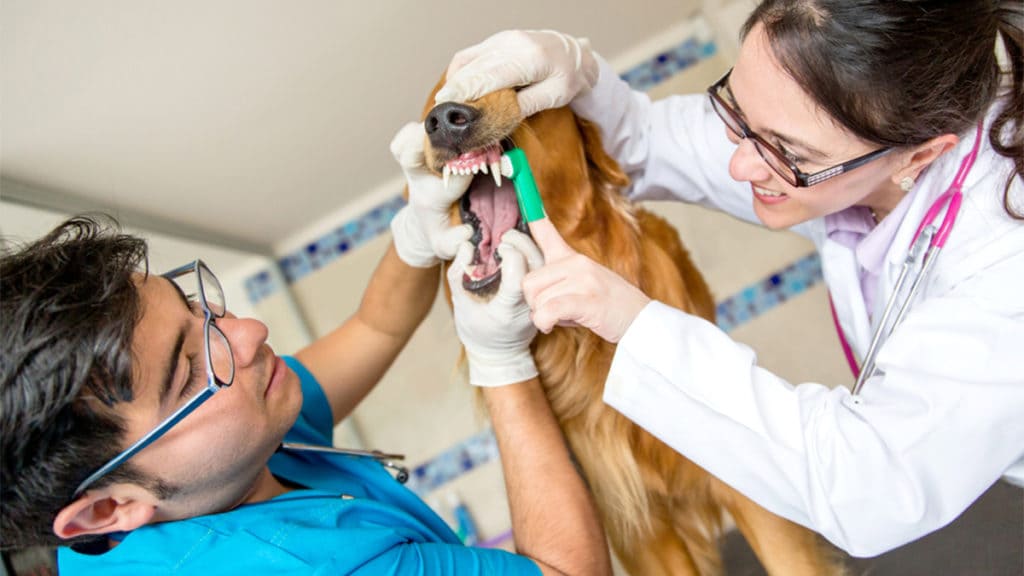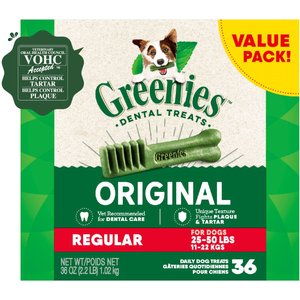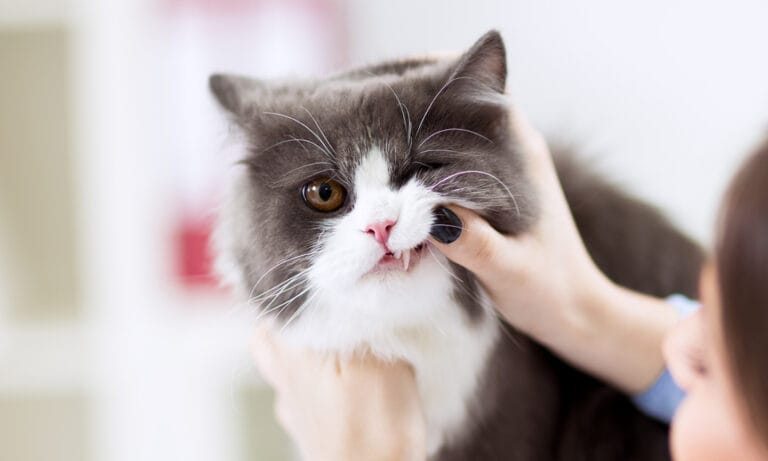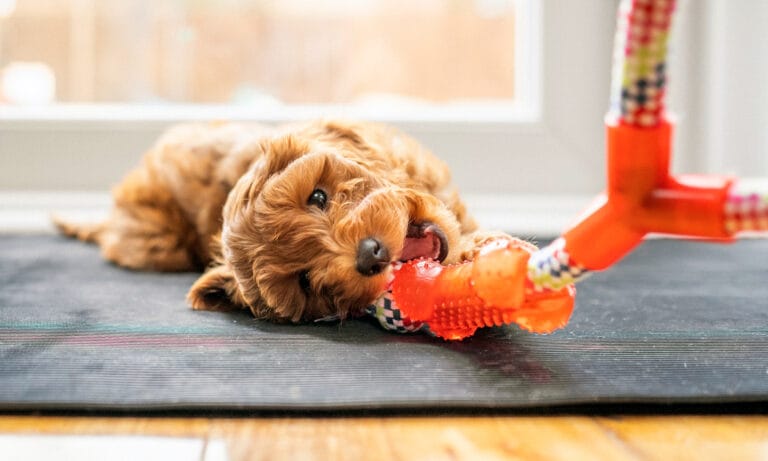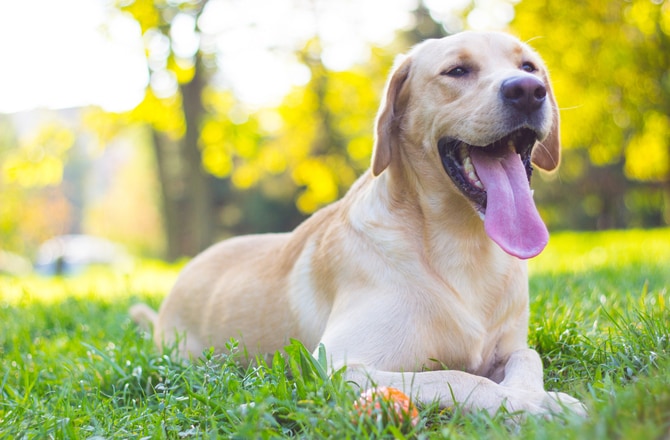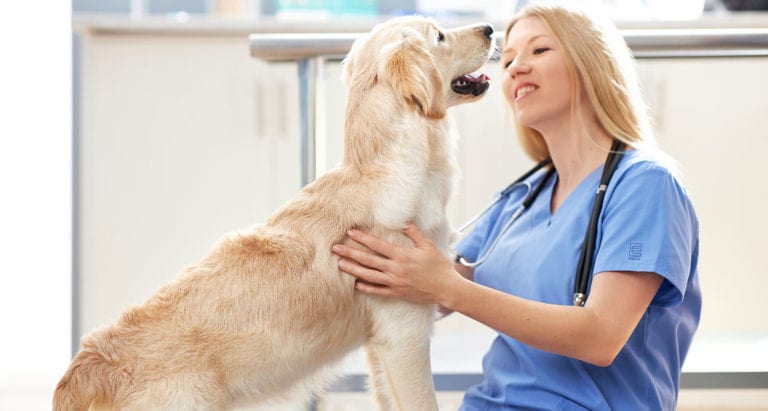When it comes to your pet, having clean, sparkling white dog teeth or cat teeth might seem like more of a cosmetic concern over a possible serious pet health issue. But the truth is, your pet’s dental health affects each and every part of your furry friend’s overall health and well-being.
To maintain good dental health, have your pet’s teeth checked once a year by your veterinarian.
Regular, yearly checkups are crucial components in keeping your pet’s mouth healthy. These visits can help you and your vet catch any minor problems before they become much bigger ones for your pet’s health. Pet parents should also keep an eye out for the following signs of dental problems and see a veterinarian immediately if they notice any of these key indicators: unusually bad breath, broken or loose teeth, lack of appetite or dropping food, bleeding or swelling around the mouth, excessive drooling, abnormal chewing or any obvious signs of pain or discomfort.
The easiest way to keep your pet’s mouth healthy is to stop disease before it starts.
To keep dental problems and periodontal disease at bay, one of the most effective ways to help your pet’s pearly whites at home will involve regular cleaning and brushing of your dogs’ teeth (or cat’s teeth). It may take time for you both to feel comfortable with this idea and to train your dog—or even more difficult, your cat—to accept regular tooth brushing. But brushing even a few times a week, or ideally daily, according to the American Veterinary Dental College, can make a great deal of difference.
A task even easier than brushing your dog’s teeth? Giving her dog dental chews like Greenies, the #1 vet recommended dog dental chew – proven to clean dog’s teeth by fighting both plaque and tartar buildup! There are many hard dog chews and liquid water additives for both cats and dogs that can help prevent tartar buildup. As always, it’s best to consult your veterinarian before purchasing new products or treats to make sure you’re getting the best item for your pet and her needs.
Consider occasional professional teeth cleanings.
As a pet parent, you have a few options when it comes to your dog or cat’s dental healthcare. It is less costly to clean your dog’s or cat’s teeth regularly at home, but (again, just like humans) animals may need both at-home and professional cleanings to keep their teeth and gums in tip-top shape.
If you do opt for professional cleanings, many veterinarians recommend giving a pet anesthesia during the service. Doing so, will allow for close scrutiny of and the removal of plaque at the gum line, where the worst buildup usually occurs. Most animals do not like any human, no matter how trusted, probing that far down into their mouths, so to better ensure both your pet and the veterinarian aren’t injured during the cleaning, anesthesia is often necessary. This can up the cost of a basic dental exam and cleaning considerably when compared to home care, but in the long run, it is well worth the price if it prevents the progression of serious dental disease and other problems that could be detrimental to your pet’s overall long-term health.
Share:
